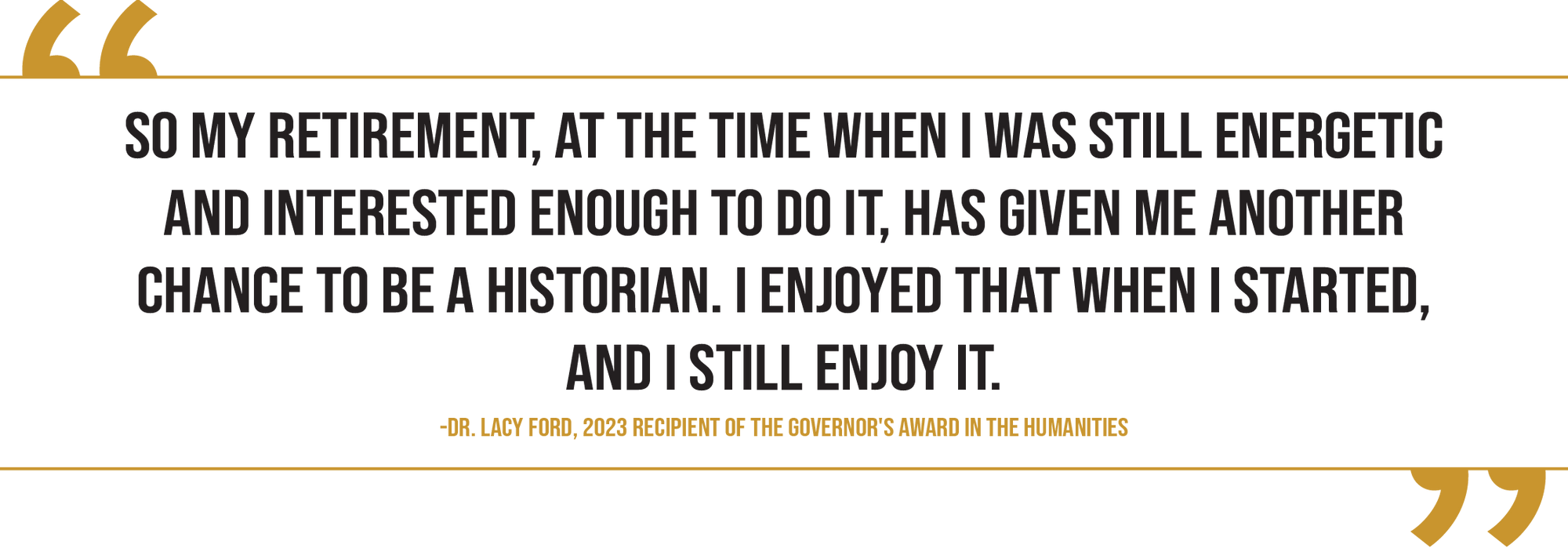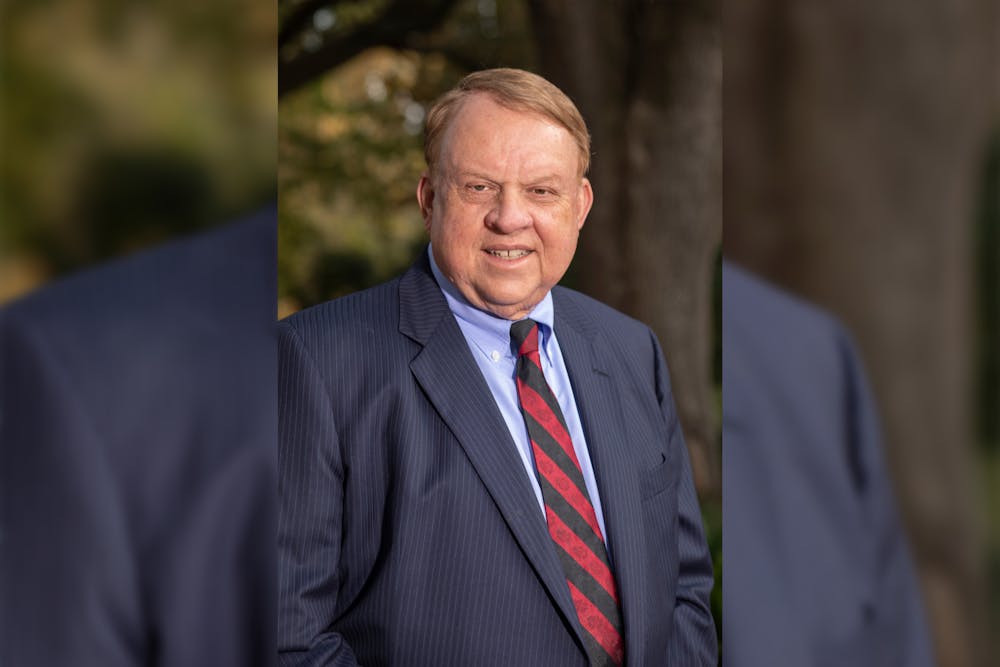Lacy Ford, a former faculty member and current scholar-in-residence at USC, has been named a 2023 recipient of the Governor's Award in the Humanities.
The award highlights research and teaching in the humanities and recognizes efforts made to help people understand South Carolina's culture, according to South Carolina Humanities. A ceremony recognizing the recipients will be held on Thursday, Oct. 19, at the Pastides Alumni Center in Columbia.
Ford was first hired as an assistant professor at the university in 1984 and has held various administrative positions since 2007, including chair of the Department of History, dean of the College of Arts and Sciences, senior vice provost and dean of Graduate Studies. Since retiring, he has been a scholar-in-residence in the Institute for Southern Studies.
The Daily Gamecock sat down with Ford to learn more about his career path and what led to this honor.
The Daily Gamecock: Congratulations on the Governor's Award. Have you ever worked with South Carolina Humanities before?
Lacy Ford: "Thank you. I’m very excited about receiving that award. I’m glad that I have made some contributions that are worth recognizing."
"Yes and no; I’ve never had a formal affiliation. I have not been an officer or a board member, but I have given talks that they had sponsored. Usually, they take grants from local groups, and they give them some money for that and then those groups ask you to speak, so, indirectly I’ve done a good bit of that on and off for over 20 or 30 years ... Mostly those were local history talks."
"I would like to make a contribution to South Carolina Humanities to the extent that I can now, not just through producing work for it, but to try to pull people together under the umbrella of South Carolina Humanities and bring a number of things to fruition."
What is your academic focus? How has it shifted as you've continued in academia?
"I’m a student of southern history, mostly of the period between 1800 and the present. I think most of my publications have fallen between 1800 and 1900, but I’ve also had a secondary area of scholarship on the South Carolina and southern economy in the 20th and now 21st century."
"My first book ('Origins of Southern Radicalism: The South Carolina Upcountry, 1800-1860') and some related publications was about the Upcountry of South Carolina from 1800 to 1860. It was about politics, society and economy in that period."
"My next book ('Deliver Us From Evil: The Slavery Question in the Old South') covered the entire South from 1800 up until about 1845 or so. That book came out in 2009, and it was shortly after that I started serving in administrative positions. So, most of the things that I have written after that were not that large in scope."
"Now, more than a year ago, I focused on writing scholarly journals (and) essays for journals ... I wrote 10 essays, they were kind of big-think essays about the history of the American South, and I learned yesterday that Cambridge University Press has accepted that as a volume of essays and will come out probably in the first six months of 2024. "
What do you love most about your current role?
"I had taken probably at least a decade of those last years (at the university) with only very limited involvement in the history scholarship. I’d write an essay or something here or there, but very little involvement. So my retirement, at the time when I was still energetic and interested enough to do it, has given me another chance to be a historian. I enjoyed that when I started, and I still enjoy it."

What has been your most gratifying piece of work?
"('Deliver Us From Evil: The Slavery Question in the Old South.'), I did a lot of research, I did a lot of archival work, I traveled a lot, I wrote and rewrote as my ideas unfolded. I think it’s the kind of project that many scholars would like to do and don’t just because it’s time-consuming and hard."
"Equally gratifying to me is that, over the last 14 years that I was at the university, from 2008 until 2020, I was in administrative positions ... There are hard parts of those jobs, don't get me wrong, and you’re not always going to make everybody happy, but I really felt like those were opportunities to make a contribution to the university and to make those departments better and stronger and to find resources for them ."
I saw that on your door that you teach a class?
"Yes. Each fall since I’ve been retired, I’ve taught an Honors College class, and I have really enjoyed that. I've really enjoyed the opportunity. One of the benefits of a small class size, which they try to guarantee, is you get to know each and every student in some way. And I try to have a lot of discussion — we do readings and I try to have a lot of discussions — in class, and you get to know them, what they think, what they worry about (and) try to be open to give them the floor if there’s something that they’re either upset about or concerned about or extremely pleased about."
What do you hope that people gain from your work?
"You really realize that you put your views out there, and you can’t control how they’re going to be received or how people may misread them, and that’s not always misreading them in a negative way. Sometimes they see something in it that’s inspirational that you’re not even thinking about. I think what you have to do is be satisfied with (the fact that) you have had your chance to say what you think, and then maybe that will influence somebody to agree with you, or maybe it will influence somebody to have an even better idea. It keeps a dialogue going; it keeps thinking going. And I really do think (that) ultimately, we have to think our way through problems. We can’t fight our way through them or argue our way through them or just ignore them. I think, ultimately, we all have our different ways of getting to it, but we have to think our way through problems."

